Mohammed Skaf speaks from jail: ‘I’m not a rapist so I’m not sorry’
Speaking for the first time from behind bars, the youngest of the Skaf rapists shows no remorse and still denies his guilt. Mohammed Skaf, now aged 36, has spent 19 years behind bars and was denied parole last month because authorities believe he has no empathy for his victims and is likely to reoffend.
True Crime
Don't miss out on the headlines from True Crime. Followed categories will be added to My News.
- Baby-faced killer ‘exhausted’ from daily sex in prison
- Editorial: No place for leniency in Skaf sentence
It is the name that sends a shiver of disgust through Sydney, conjuring up a series of merciless pack rapes that scarred a generation.
But Mohammed Skaf, who has served almost two decades behind bars, would never be tempted to change his name — not even to make a fresh start.
“Why should I change my name?” said Skaf, speaking for the first time since being convicted for his part in the assaults on a number of women, one of whom was raped 25 times by 14 men in a single night.
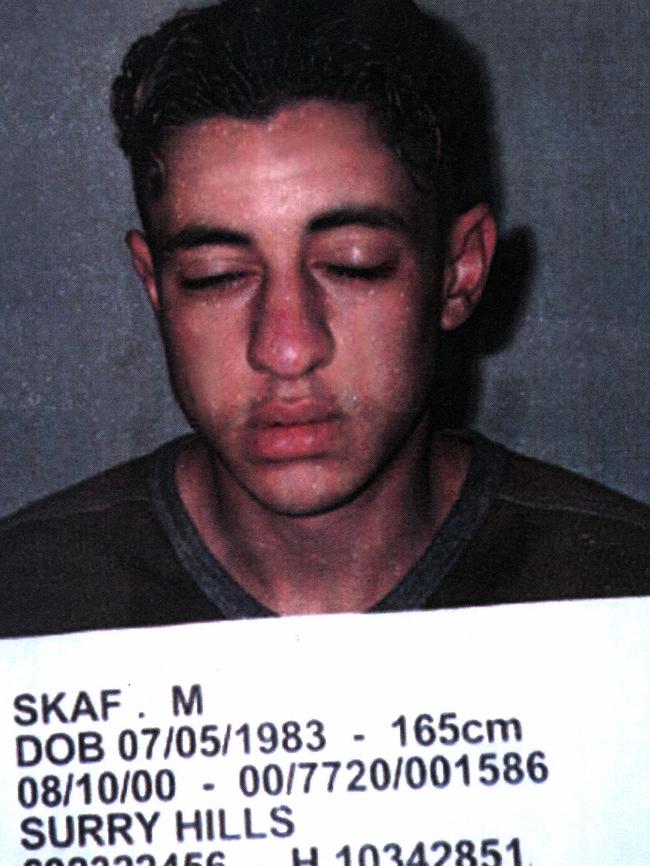
“I’ve been treated unfairly during my time in prison.”
It is one of a series of astounding claims Skaf makes in a jailhouse statement that suggests, despite the long years he has had to reflect on his crimes, he neither admits his guilt nor feels remorse.
MORE FROM BRENDEN HILLS:
Fadi’s desperate phone call to John over $200k loan
‘Go to your sleazy hooker joints, you dirty *****’
Ibrahim’s disgust at kinky Muslim crim’s fetish
In the months leading up to the 2000 Sydney Olympics, Skaf and his older brother Bilal led a gang of men who preyed on Sydney women. However, from his cell in Long Bay jail, Skaf claims he is not a rapist, he is not a danger to society and that he should never have been sent to prison in the first place.
And it is this defiance that is keeping him there.
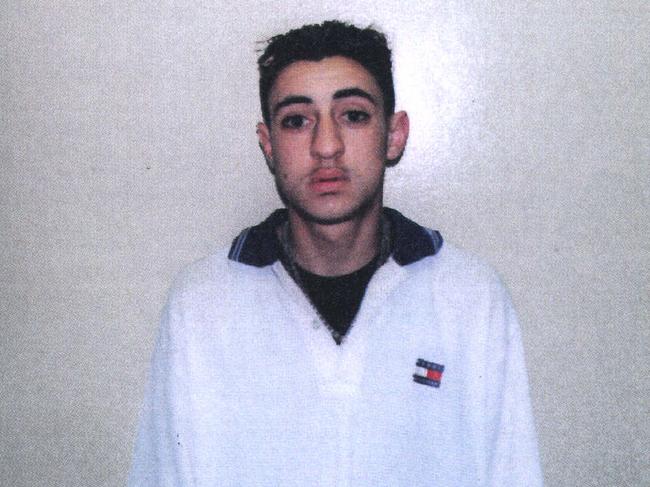
After 19 years behind bars, Skaf has served the minimum term of his 22-year sentence, leaving authorities to deal with the question of how long they can keep him in jail. He was refused parole last month because authorities believe he blames his victims, has no empathy for them and is likely to reoffend.
“I’m not a rapist. What she alleged against me wasn’t true,” Skaf said.
“I don’t blame anyone. How can I have empathy for someone that wasn’t raped by me?
“I’m just saying this is what happened. What I’m saying is facts.”
Explaining why he should be released from prison, Skaf said: “Because I’m not a danger to society and I’m not a rapist. I shouldn’t have been in jail to begin with.”
Skaf was only 17 when the attacks took place between August and September, 2000 — the cherub-faced boy staring from the front pages of the nation’s newspapers looked too innocent to be capable of the crimes for which he was responsible.
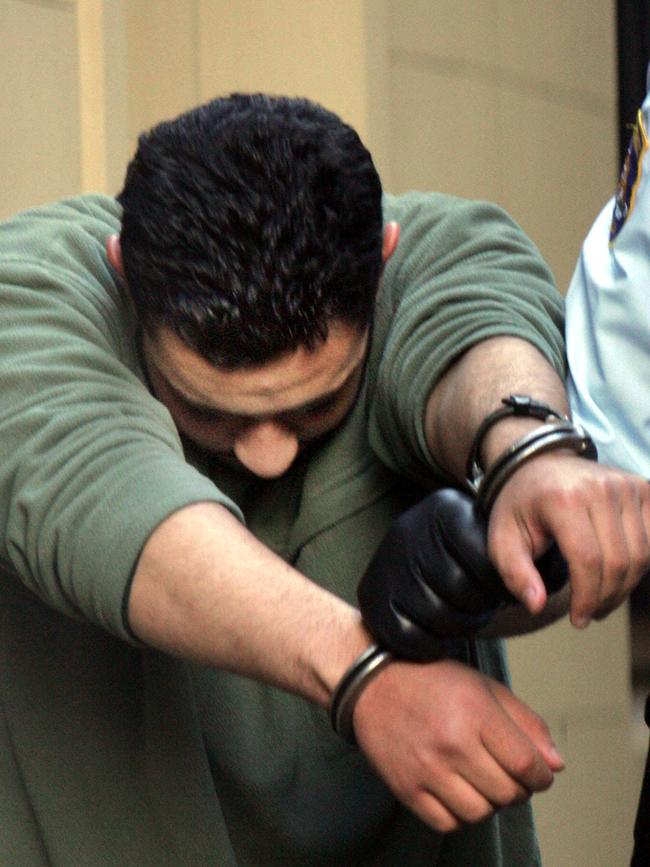
Now he is 36 and even Margaret Cunneen SC, the prosecutor who put him in jail, said last year: “I think it’s time he got out.”
Skaf has never seen the world beyond jail as an adult. Those who have met him recently say the air of youthfulness is gone. His hair is longer, his face rounder and his time behind bars has drained the softness from his face.
It is worth recapping what the jury heard about the two attacks Skaf was involved in, described by a judge as “worse than murder”.
On August 12, 2000, Skaf brought a 16-year-old female friend to Gosling Park in Greenacre, southwest Sydney, where a soccer game was taking place. Once there, she was raped by Skaf’s older brother Bilal as 12 others laughed and bashed her before she was able to escape.
The second incident was on August 30, 2000, in which an 18-year-old woman, identified only as Ms C, was approached by Skaf on a train, which they rode together to Bankstown.
Skaf raped Ms C in a nearby toilet block, telling her: “I’m going to f**k you Leb style.”
She was then taken to two other locations where, over the course of the night, she was raped repeatedly by 14 men, called an “Aussie pig” and hosed down.
Members of the gang were sentenced to a combined 240 years in jail for attacks on six women, later reduced on appeal.
In Skaf’s latest version of the August 12 attack he denies any liability: “I didn’t sexually assault her. It was a girl that I was seeing.
“She accused my brother of sexual assault. He wasn’t actually there.”
Of the attacks on Ms C, Skaf’s denials are similar, right down to the shocking comment he made during the attack.
“I never said that,” Skaf said.
“She even says I left, so it has nothing to do with me what she claims after that.”
Despite being accused by two independent victims of similar crimes that happened within 18 days of each other, Skaf claims he and his brother had the wretched misfortune of being falsely accused both times.
Addressing his conviction at trial and his failure to have his conviction overturned by numerous higher courts of appeal, Skaf’s position is unequivocal.
“I’ve maintained my innocence for the last 19 years and I’ll maintain my innocence until the day I die,” he said.
“I didn’t get a fair trial to begin with.”
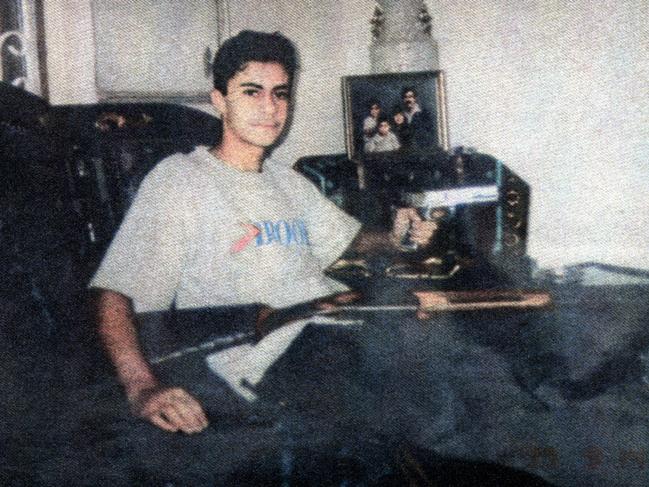
Victims’ groups say Skaf’s attitude demonstrates why he should stay behind bars.
Executive director of Rape And Domestic Violence Services Australia, Karen Willis, said: “There needs to be a pre-parole process to say that if he is still denying it, he shouldn’t be allowed to get the notoriety of having his name in the media.
“Victims of this sort of crime often never feel safe and there have been examples of people who have had to move overseas and leave their families to escape the fear.”
Despite denying his guilt, Skaf claimed he is “a changed person” to the one who entered prison.
“I’m 36 years old now. I’m not 17 like when I got locked up,” he said.
“I’ve got empathy for people who actually have been victims, people that are suffering. Because of all the things I’ve seen in jail. All the people that have suffered and been victimised.”
He also outlined his goals for life on the outside: “Get married. Have children. Work. Study. I want to get into architecture.”
Spending his entire adult life so far in jail, Skaf said he would likely set up a Facebook account when released but added there would probably only be “adverse things said about me”.
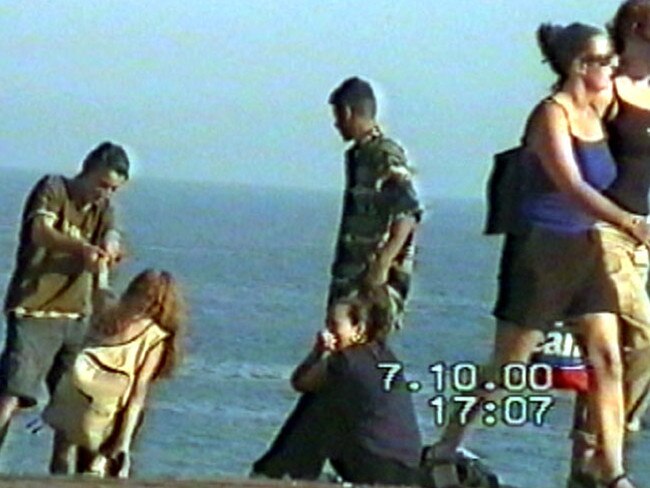
He also would not hang out with a gang.
“There will be no more groups when I get out, that’s for sure,” he said.
“I’ll be working, I’ll be looking after the family. I don’t ever want to come back to this place.”
With an air of self-pity, Skaf also describes what he has missed out on since being locked up: “Everything. Touch-screen phones, laptops. Everything. The world has changed. I’m still living in the early-2000s.”
Skaf said he is a Manchester United fan, follows Formula 1 racing and was a Canterbury Bulldogs supporter when they were “going a bit better”.
Victims’ advocate Howard Brown said when Skaf’s sentence does expire, the high-risk offenders legislation provides a number of safeguards for the community.
“One is a continuing detention order where authorities can apply to keep him in jail ...,” Mr Brown said.
“They can also be subjected to an extended supervision order for up to five years.
“This means they are released into the community but subject to very strict conditions like being electronically tagged and being required to see psychiatrists.”
A government spokesman said the maximum period for a single Continuing Detention Order is five years.
Originally published as Mohammed Skaf speaks from jail: ‘I’m not a rapist so I’m not sorry’


